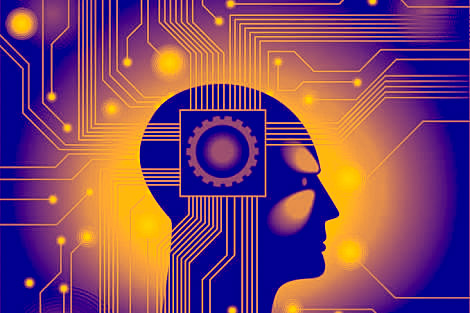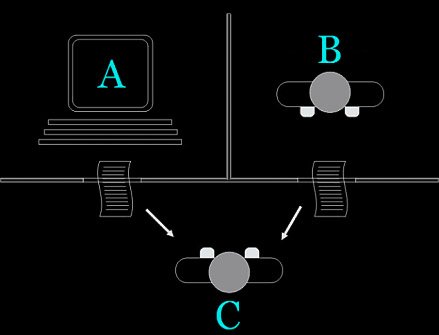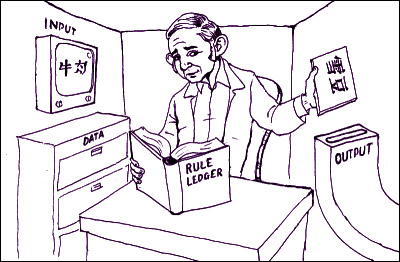
This question keeps busy the human mind for ages. Can robots be independent from humans? Can have emotions? Can be context-free? Can do art in real terms? Can beat the humans?

Some may know Turing Test. A Robot and a human are put in front of a subject. The subject communicates with the robot and the human, test is successful if the subject can't find out which one is real human. Even there is a prize named Loebner that will be given to successful program. The silver (text only) and gold (audio and visual) prizes have never been won.

In 1980, John Searle argued against reliability of Turing Test by The Chinese Room experiment. In his opinion, a person that stands without moving in a room can be accepted as intelligent and no program that imitate the human behaviour in this sense can be counted as intelligent. To know and to pretend knowing are different things.
From Deep Blue that beat Gary Kasparov to IMB's Watson, to smart assistants from present day, to Siri, at the end to Google's Sophia that influence by becoming citizen of United Arab Emirates, artificial intelligences like human are made and will continue to be been made. In second part of my post i will continue to scrutinise this subject with general questions. Thanks for reading.
In Turkish
Bu soru yıllardır insan aklını meşgul ediyor. Robotlar insanlardan bağımsız olabilir mi? Duyguları olabilir mi? Kalıplarından çıkabilir mi? Gerçek anlamda sanat yapabilirler mi? İnsanları alt edebilirler mi?
Turing testini bilen bilir. Bir deneğin karşısına insan ve robot konulur. Denek karşısındaki kişilerle iletişime geçer, denek robot olanın hangisi olduğunu anlayamazsa Turing testi başarılı olmuş olur. Bu testte başarılı olan AI'a verilmek üzere Loebner ödülleri bile vardır. Gümüş(sadece yazı) ve altın(ses ve görüntü) ödüllere henüz hiçbir program layık görülmemiştir. 1980 yılında John Searle "Turing Testi"nin güvenirliğine "Çin Odası" deneyiyle karşı çıkmıştır. Ona göre odada sabit duran bir insan bile zeki kabul edilebilir ve insan davranışlarını bu anlamda taklit eden hiçbir program zeki sayılamaz. Bilmek ve biliyormuş gibi davranmak farklı şeylerdir. Garry Kasparov'u yenmeyi başaran DeepBlue'dan tutun IBM'in Watson'una, günümüzdeki akıllı asistanlara, Siri'ye, son olarak yankı uyandıran, Arap vatandaşı olan Google'ın Sophia'sına kadar insana benzer yapay zekalar yapıldı ve yapılmaya devam edecek. Yazımın 2. kısmında sorularla bu konuyu irdelemeye devam edeceğim. Okuduğunuz için teşekkür ederim.